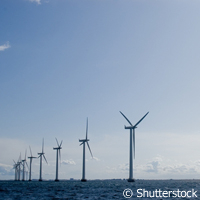New EU-funded project tests out smart grids of the future
As we increase our capacity to produce more solar and wind energy it is vital that we also increase our ability to effectively distribute it, and a new EU-funded project that aims to test these electricity distribution systems of the future has just kicked off. With a boost of funding to the tune of EUR 12.7 million under the 'Energy' Theme of the EU's Seventh Framework Programme (FP7), the EcoGrid (A Prototype for European Smart Grids) project brings together 16 project partners from Austria, Belgium, Denmark, Estonia, Germany, the Netherlands, Norway, Portugal, Spain and Switzerland. As producing 20% of our energy from renewables and reducing greenhouse gas emissions by 20% are key priorities of the EU's Europe 2020 strategy, projects like these help to make these flagship political objectives a reality. The EcoGrid project will run a pilot real-time market place for distributed energy resources on the Danish island of Bornholm by asking 2,000 electricity customers to reduce their power consumption when the wind is either too weak or too strong for the wind turbines on the island to work. In return they will be able to reduce their electricity bill with the help of an intelligent power system known as a 'Smart Grid'. The participants will be equipped with residential demand-response devices that present real-time information to consumers and allow them to pre-programme their automatic demand-response preferences. At the moment on the island, 50% of electricity comes from wind power. Senior researcher Ove Grande from the coordinating institution SINTEF Energy Research in Norway comments: 'When a country develops a high capacity to produce solar and wind power, the usual assumption is that system operators will need backup sources that can quickly be switched on when the wind does not obey the weather forecast or when clouds unexpectedly shade solar cells. And back-up sources of supply to meet acute power-matching needs are expensive.' Normally these problems are solved by using gas turbines or importing power from other regions or countries. Ove Grande hopes that their project results will show that another approach to this problem is possible. 'In the system to be demonstrated on Bornholm it is the consumers who will solve the problem, by cutting back some of their electricity consumption for short periods. This is far cheaper than giving them reserve power, and is also more environmentally friendly. And because it is cheaper, it will raise the limits of how much solar and wind power an electricity grid can actually rely on.' A Smart Grid works in an automated manner and disconnects an agreed proportion of each customer's consumption when electricity prices are high. The same system allows customers to raise their consumption when prices are low. The project participants will have new electricity meters installed in their homes that differ from current meters by breaking down when electricity is being used as well as total power consumption. The project will develop a computer system that automatically calculates the price of electricity for customers on the basis of the situation in the generation and distribution system. This price should always reflect what it would cost to generate reserve power in the same periods. The system will continuously communicate these prices to a little smart box that will be installed in the customers' homes along with the meters. When necessary, the box will switch electrical appliances on or off, depending on the customer's prior assessment of what is an acceptable electricity price for different types of consumption. After the project the researchers will be able to assess how the participants found the system using their feedback.For more information, please visit:SINTEF:http://www.sintef.no/Home/
Countries
Austria, Belgium, Switzerland, Germany, Denmark, Estonia, Spain, Netherlands, Norway, Portugal



